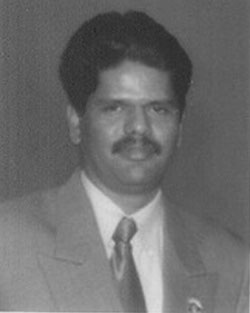In common parlance, capacity and capability are loosely used to mean the same; like we say Sheela is a very capable person or Govind has solid capacity. Thesaurus will also throw up capability as a synonym when we check for the word capacity. However in Operations definition, these terms mean totally different aspects.
Capability (machine or process) is the ability to meet the required customer specification or tolerance. Process capability studies are carried out to determine process variation and to compare it with the customer's requirement. In manufacturing and transactional operations, there are indices to calculate the process capability of a machine or a process. Process Capability Index, Cp, is the ratio of the customers' tolerance to the process variation. For example, if a customer wants us to deliver a product with a range of 10 days, no faster than 3 days and no longer than 13 days, the lower specification limit is 3 days and the upper specification limit is 13 days and the range is 10 days. The process capability index Cp is calculated by dividing 10 with the actual process variation. The process variation is typically obtained by calculating 6 times the standard deviation of the process. If we observe that from the data collected the standard deviation of our response to the customer is 1.5 days, then six times standard deviation ( 6 x sigma) of the process is nine.
Cp= customer specification / 6 s; and in our example we would obtain Cp= 10/ ( 6x1.5) which is 1.11.
Similarly if we could calculate the machine capability of a metal rod cutting machine by comparing the customer specification limits on the cut length to the actual process variation of the process. If the upper specification limit of the cut length is 1200 mm and the lower specification 1000 mm, then the tolerance is 200 mm. If the process standard deviation is 25 mm, the process variation would be 150 mm (25x 6) and hence the Cp= 200/150, i.e., 1.33.
A Cp of less than 1 is defined as not capable, Cp of 1.0 is barely capable and a Cp of 1.33 or larger is capable. A process with a Cp of 2 is called a "Six Sigma Process". Another measure of capability is Cpk, which also takes into consideration the shift of the process with respect to the required mean of the process. For example, if the machine cut the parts within the tolerance band of 200 mm, but if the machine actually cut the rods to a mean length of 900 mm instead of the 1100 mm, then we may obtain a good value for Cp but a poor value of Cpk; indicating the process is not centered to the required specification.
While Capability is the measure of performance, Capacity is the ability to effectively meet market demand; capability is to do with ‘how well' and capacity is to do with ‘how much'. Capacity measurements such as Productivity and Utilization are related to how well plants utilize their investments in plant and equipment. Plant managers often focus on loading the capacity to the maximum, but the focus must be not just on loading, but to ensure optimum use of capacity. Incapable processes can cause defects and rework and in the process lead to more use of capacity, which indeed is not desirable and also slow and unplanned activity can lead to loading of capacity ineffectively. Sheer use of capacity by over production, slow production and creating defectives is a waste and the focus must be on effective use of capacity, so that we can meet the market demand.
|
Capability is the measure of performance, Capacity is the ability to effectively meet market demand. |
Six Sigma tools are used to improve capability and Lean Manufacturing tools are used to eliminate non-value adding steps in the process and thereby free-up capacity. While Six Sigma focuses on reducing variation, Lean focuses on speed of the process. Lean application can lead to freeing up of machines, floor space and personnel. Hence it is said the union of Lean and Six Sigma is very powerful to ensure improved Capability and optimum utilization of Capacity.
 |
Pradeep Kumar E .T - A Master Black Belt in Six Sigma , is the Country Manager- Operational Excellence with Tyco Electronics Corporation India Pvt Ltd. Feedback can be e- mailed to pradeep@ businessgyan.com |

